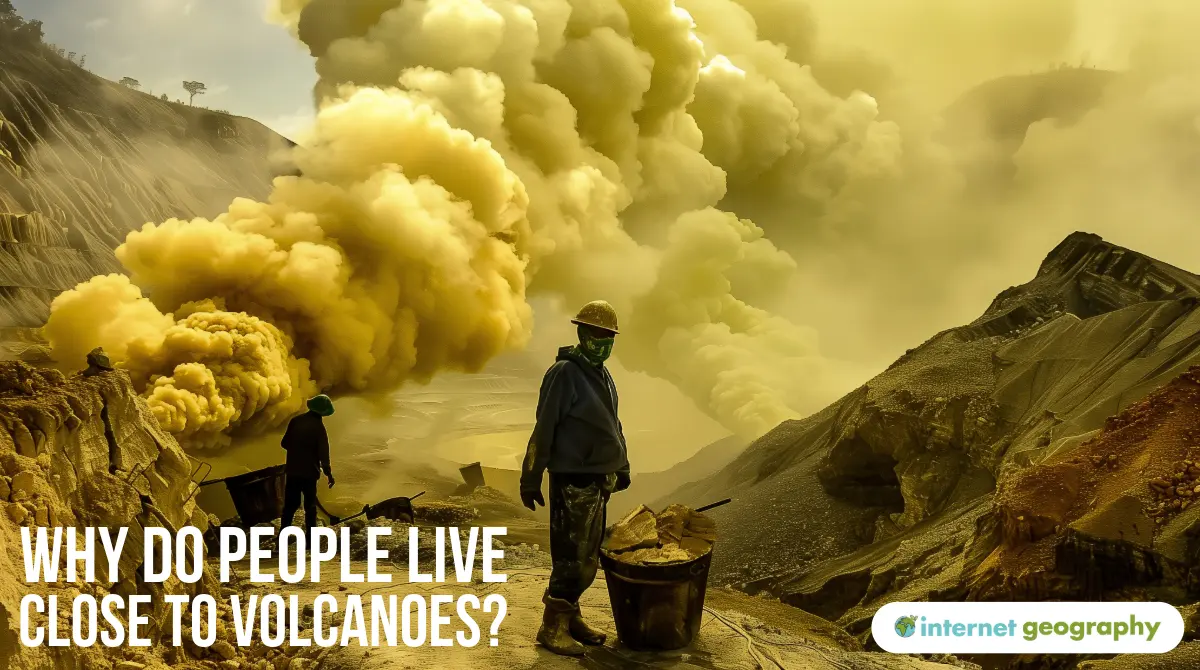Why do people live close to volcanoes?
Volcanoes have a wide range of effects on humans. These can be problematic or beneficial. It is usually the destructive nature of volcanoes that is more widely documented. However, many people rely on volcanoes for their everyday survival. Today, millions of people live near volcanoes for this very reason.
Mining
Volcanic areas are rich in valuable minerals. Magma and volcanic gases bring metals like gold, silver, copper, and zinc close to the surface, especially through hydrothermal activity. These resources attract miners to volcanic regions, and mining towns often develop nearby. The image above shows an example of sulphur mining near an active volcano.
Geothermal Energy
People live close to volcanoes because geothermal energy can be harnessed by using the steam from underground, which the Earth’s magma has heated. The steam drives turbines in geothermal power stations to produce electricity for domestic and industrial use. Countries such as Iceland and New Zealand use this method of generating electricity.
The video below features the Blue Lagoon, a geothermal spa in Iceland. It is one of Iceland’s most popular tourist attractions.
The video below shows the Svartsengi Geothermal Power Station next to the Blue Lagoon, Iceland.
Tourism
Volcanoes attract millions of visitors around the world every year. Apart from the volcano itself, hot springs and geysers can also bring in tourists. This creates many jobs for people in the tourism industry. This includes work in hotels, restaurants and gift shops. Often, locals are also employed as tour guides.
The video below features the Strokkur Geysir (Selfoss Geyser) in Iceland, a popular destination that attracts thousands of tourists each year.
Agriculture
Volcanic areas often contain some of the most mineral-rich soils globally, which are ideal for farming. Lava and material from pyroclastic flows weather to form nutrient-rich soil, which farmers can cultivate to produce healthy crops and rich harvests.

